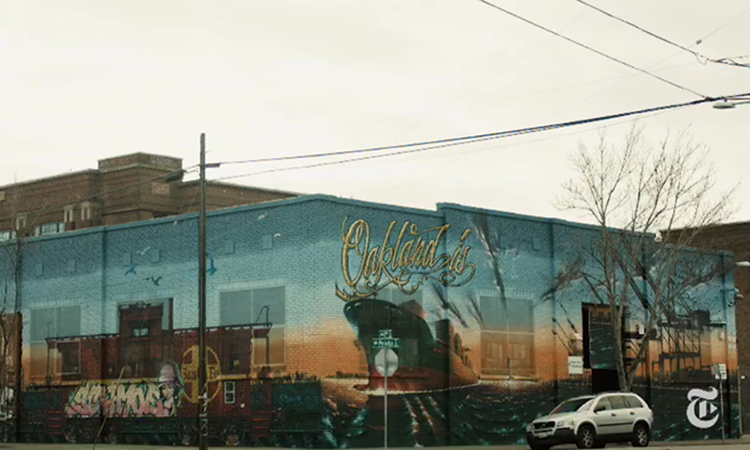Notes on ‘A Walk on the Wild (Edibles) Side’
JULY 10, 2015 | BY WENDY LEVY
An open letter to The New York Times, Mark Bittman, Phil Stark, Tom Carlson, and UC Berkeley’s Global Food Initiative
 I loved the Ms. magazine No Comment section, where they curated some of the most heinous sexist advertisements currently in circulation—and said nothing about them. Just put them out there. Since the 1970s, these dramatic micro-stories illuminated systemic violence and discrimination against women in every aspect of our American lives.
I loved the Ms. magazine No Comment section, where they curated some of the most heinous sexist advertisements currently in circulation—and said nothing about them. Just put them out there. Since the 1970s, these dramatic micro-stories illuminated systemic violence and discrimination against women in every aspect of our American lives.
I wish I was good at No Comment. When I am confronted with media that perpetuates injustice, I tend to comment. I’m writing about a video The New York Times published today, “A Walk On the Wild (Edibles) Side”.
“A Walk on the Wild (Edibles) Side” is about urban foraging for edible weeds. The video shows Bittman with Phil Stark and Tom Carlson—two UC Berkeley professors interested in “raising awareness about the weeds sprouting up underfoot in underserved urban neighborhoods.” The tall look-alike white male trio walks around one of those neighborhoods near 12th and Willow in West Oakland, pretty far from their Berkeley campus, looking for random weeds that could be food for people. Bittman narrates the journey of discovery with wide-eyed energy and enthusiasm—even when one of the professors suggests that you could eat a weed a dog has peed on. “Just wash it off, its water soluble, its non-toxic.” And according to Stark and Carlson, “the science” says not to be concerned about the lead in the soil.
After that, the storytelling, and the foraging, goes really wrong.
How might you have included the people in the neighborhood in your project? What might it have been like to be invited there? How could you have shared this discovery with the people whose land you are foraging?
The neighborhood is identified by a couple of street signs, a quick long shot of a young interracial couple, a discount bodega, a stretch of homes with exposed chain link fencing. The men walk the neighborhood with ease without saying hello to people they pass. They walk up people’s driveways and front stoops, pulling weeds from their patches of front lawn—and never ask permission. There is one unidentified black guy from the block with whom they seem to be talking for two seconds, but he does not speak. Clearly, this is not his story. Bittman, Stark, and Carlson don’t ever knock on the doors of the houses where they are foraging and shooting to let the “underserved” people know what they found (“there must be a thousand servings here!”).
Mark, Phil Tom: you are smart men, and you are standing right there in front of the house of the people you have identified as “underserved.” How hard is it to be in-service? How might you have included the people in the neighborhood in your project? What might it have been like to be invited there? How could you have shared this discovery with the people whose land you are foraging? This could have been an omission from the storytelling process, the foraging project, or both. In either case—it’s layered with injustice.
After the story hightails it out of West Oakland, the film jumps to wild tastings the men host at local restaurants like Chez Panisse—also geographically and conceptually far from the neighborhood where these weeds were foraged. Then Bittman heads up to Sonoma to talk to organic farmer guru Bob Cannard, who speaks eloquently about the weeds feeding the soil, and how farmers should transform their adversarial relationship with weeds and instead, nurture them. I couldn’t help but think if we nurtured and respected the people back on 12th and Willow with as much care as we nurtured these weeds, we’d all be a lot better off.
And if we paid more attention to how we tell our stories, who speaks and to whom and who is silent, who are the experts and the agents, who shares the power and the screen, who sees and who is invisible—then we actually might excavate a clearer path to justice.


Leave a Reply